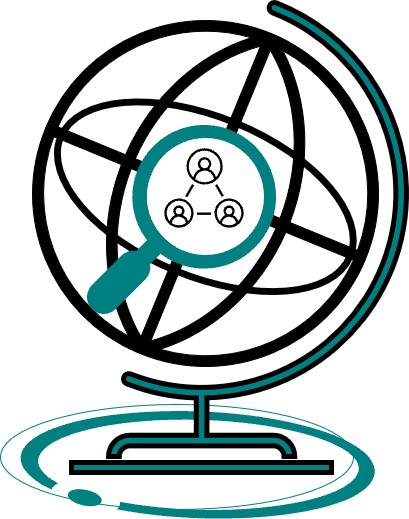This blog post describes the first step in uncovering your family history which often begins with a simple, yet meaningful interview. The process of this type of communication will open the door to the world of genealogy and reveal just how beautiful and unique your family history truly is.
Have you ever wanted to discover who your ancestors were? Uncover long-lost family traditions? Learn to embrace your culture as a whole? And truly discover your family’s origin? In our new four-part series we’ll provide the ultimate guide on how to get into genealogy, regardless of experience or skill level.
In this first article, I’ll discuss how to complete the first major step in starting research of your own family history by conducting an interview with a family member. I’ll explain the best way to conduct an interview on your own, as well as share some of my personal experiences when it comes to interviewing family members.
As you begin your research, I’m happy to talk through what is discovered and offer advice. You can fill out the Contact SYFT form or email us directly at info@shapingyourfamilytree.com.
WHY YOU SHOULD START WITH AN INTERVIEW
An interview with a family member is a great starting point when it comes to commencing genealogical research. This is because of the crucial facts that can be uncovered from older family members which serve as the foundation for beginning research. Questions answered by your family members could provide information that would normally take hours of concentrated research to uncover.
In addition to the facts you’ll obtain through the interview, stories your interviewee may tell are equally as important, if not more. In genealogy, the goal isn’t just to do research to compile lists of names and dates, but rather to paint a picture of what someone’s life was like. Your family history is built upon your ancestors’ personal experiences, which all come together to create your family’s story. This is why it is essential to start your journey of discovering your family’s story by sitting down with your family and asking them questions.
These interviews will not only provide you with the tools to start your genealogical research, but an overall opportunity to learn more about your family. As well as a personal connection, knowing about a special piece of the world’s history linked to you and your family will inspire you. But where should you begin?
GETTING STARTED
PICK A INTERVIEWEE
The first thing you need to do when planning a genealogical interview is to decide who you want to interview. The person can be any member of your family you desire, however we recommend starting with the eldest members and working your way down the ranks with the end-goal being to have interviewed all of your relatives in order to obtain all of their individual accounts.
Once you decide who you’re going to interview, it’s helpful for both you and your relative to share information related to the overall goal of the interview and the topics you plan on discussing. This will put your interviewee at ease and work to add overall structure to the interview.
SCHEDULING
When it comes time to schedule the interview, you’re going to want to choose a time and place that is most convenient to your relative. Your relative may even prepare lists of dates, details, and refresh themselves on stories they plan on sharing, before the meeting. Whether it’s at the interviewee’s home, or over the phone, you want them to be comfortable and for the interview to be conducted in a relaxed environment.
PREPARATION
Before you conduct your interview, there are a few preparations you’ll need to complete in order to make the most out of the interview. It’s a good idea to decide on an overall goal for the interview; whether you’re going for a full account of your relative’s life experiences, or focusing more on a particular period of their life.
After you’ve chosen the interview’s goal, it’s time to start planning questions. Questions asked in the interview should all depend on the information you aim to acquire, so be sure to finetune your questions accordingly. Now is also the time to research any background information you would like to have obtained beforehand. We’ll provide a more in-depth explanation on exactly what questions to ask, and how to modify your questions to align with the goal of your interview later on in the article. But for now, let’s discuss what to do, and what not to do during the interview process.
THE INTERVIEW
Now that you’re fully prepared to interview your chosen relative, let’s go over the best tips in doing so to make the process as enjoyable as possible for both you and your relative.
The main challenge presented when interviewing anyone is getting the conversation flowing. In a genealogical, or any interview really, getting the conversation to flow is essential for acquiring the information you desire. Here are a few common mistakes many interviewers make, so try to avoid these throughout your interview process:
- Interrogating your relative. This approach can be irritating for them as they may be unable to remember every date and detail. Treat the interview as friendly conversation, not an interrogation. Instead of constantly pressing for information, ask questions regarding names and dates naturally, whenever they surface in the conversation.
- Not showing any interest. One of the biggest ways for the interview to become dull is by you not showing any interest in what your interviewee has to say. Plus it may be agitating for your relative if you set up an interview with them just to show up uninterested. Maintain eye contact, smile, encourage them, give nods, and just be immersed in the interview. These are all ways to keep them engaged and make the interview a fun experience for the two of you.
Ensure you’re taking notes throughout the course of the interview. Write down important details your relative provides or any significant questions you may have while your relative is speaking. If both you and interviewee are comfortable with the idea of recording the video, I would highly recommend doing so. This will not only provide unlimited access to what you and your relative discussed, but you will also be able to focus on the conversation without worrying about taking notes. You can record just audio, or video as well, both are beneficial.
Always remember to thank your interviewee for participating after the interview. If you recorded the interview, you should also provide them with a copy. Giving your relative a gift of appreciation for their time isn’t a bad idea. It doesn’t have to be anything fancy; chocolate is usually a winner!
HOW TO PLAN QUESTIONS
Before you begin to prepare your list of questions, it’s a good idea to start by conducting background research. Not only will background research help you ask better questions, but it will also help you decide what information you would like to obtain, as well as the topics you would like to cover during the interview.
When shaping your questions, always keep them open-ended so that your relative is given opportunities to give more detailed answers. Ensure to ask follow-up questions as well. Good follow-up questions include questions like “Could you elaborate?” “Could you provide an example?” By asking these questions it will help keep you stay engaged in the interview as well as providing more specific information on certain topics.
PREPARING QUESTIONS
When preparing questions for the interview, start by asking for basic information about your relative:
- What is your full name?
- Do you know the origin of your name, or if you were named after an ancestor?
- Where were you born?
- Where did you grow up?
Even if you already know the answers to these questions, it’s still good to verify the information and asking these questions also provides a good starting-point for the interview.
Ask questions focusing on valuable genealogical information such as the names of your family members, significant dates, and locations. Particularly valuable genealogical information includes birth, death, marriage, and immigration dates as all of these can be verified and further researched through various genealogy records. The same goes for where they lived and worked, especially locations such as native countries, counties or parishes, and hometowns.
Like we previously mentioned, genealogy isn’t all about names and dates; stories and family customs play a huge role in a family’s history. Ask your relative questions about family traditions and celebrations and your family’s culture as a whole. A great way of getting more details about dates and places they provide is to dive deeper into their answers. For example, if your relative provides the name of their hometown, ask them to describe what it was like growing up there and how it’s been impacted by modern culture and change over the years. This will not only allow you to obtain more-detailed information, but it will make the interview more enjoyable for both you and your relative.
Keep in mind the focus of the interview may shift throughout its duration, but it’s important to allow your relative to finish speaking before you redirect the focus of the interview. Your relative may be telling you an experience or story they haven’t shared in years so it’s important to let them finish their stories. If the interviewee seems tired, or there are questions still remaining, offer to come back for a follow-up visit.
In the interview I conducted with my grandmother, I used Ancestry’s Questions for Interviewing Family Members which served as a great foundation of questions used throughout the interview. If you do end up using a pre-prepared question list like the one from Ancestry, still remember to ask follow-up questions after and don’t be afraid to derive from the list to ask your own questions.
MY PERSONAL EXPERIENCES
I recently had the opportunity to interview my maternal grandmother and was able to learn the details needed to begin researching her family history. These details included the important names, dates, and locations in regards to her family’s history.
Not only was I able to gather the information needed to begin genealogical research, I was able to truly connect with her and understand her life story. The time we spent together discussing the significant events and stories she experienced throughout her life was extremely enjoyable. I was truly surprised by some of the stories and experiences she told me about as well as how much we bonded in such little time. Coming out of the interview, we both felt so much closer together which showcases just how powerful a genealogical interview can be.
And that is why I encourage you to go out and begin interviewing your own family members and embark on your own genealogical journey. In our next post, we’ll discuss the next steps after completing the interview, and how to apply the information you gathered to create genealogical research plans which are an extremely efficient way to complete research and stay focused while doing so.
-
Image. Grandchild and grandparent bonding from Depositphotos.

